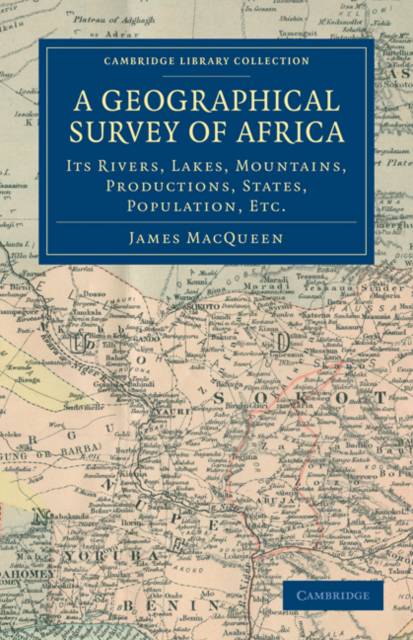
- Afhalen na 1 uur in een winkel met voorraad
- Gratis thuislevering in België vanaf € 30
- Ruim aanbod met 7 miljoen producten
- Afhalen na 1 uur in een winkel met voorraad
- Gratis thuislevering in België vanaf € 30
- Ruim aanbod met 7 miljoen producten
Zoeken
A Geographical Survey of Africa
Its Rivers, Lakes, Mountains, Productions, States, Population, etc.
James Macqueen
€ 90,45
+ 180 punten
Omschrijving
James MacQueen (1778-1870) was a British geographer and also one of the most outspoken critics of the methods of the British anti-slavery campaign in the 1820s and 1830s. Although he never visited Africa, he became an acknowledged expert on the continent, through reading all available accounts, ancient and modern, as well as interviewing slave merchants while managing a sugar plantation in the West Indies. This work was published in 1840, and was aimed at assisting the expansion of colonial trading interests. In the preface he is critical of the efficacy of British attempts to eradicate the slave trade, and also of the ill-preparedness and often fatal ignorance of many explorers. He believed that with better information and planning, European involvement in Africa could be much more effective, and that the slave trade could be better reduced by the work of missionaries and by increased trade than by military intervention.
Specificaties
Betrokkenen
- Auteur(s):
- Uitgeverij:
Inhoud
- Aantal bladzijden:
- 432
- Taal:
- Engels
- Reeks:
Eigenschappen
- Productcode (EAN):
- 9781108031264
- Verschijningsdatum:
- 19/05/2011
- Uitvoering:
- Paperback
- Formaat:
- Trade paperback (VS)
- Afmetingen:
- 140 mm x 216 mm
- Gewicht:
- 544 g

Alleen bij Standaard Boekhandel
+ 180 punten op je klantenkaart van Standaard Boekhandel
Beoordelingen
We publiceren alleen reviews die voldoen aan de voorwaarden voor reviews. Bekijk onze voorwaarden voor reviews.











